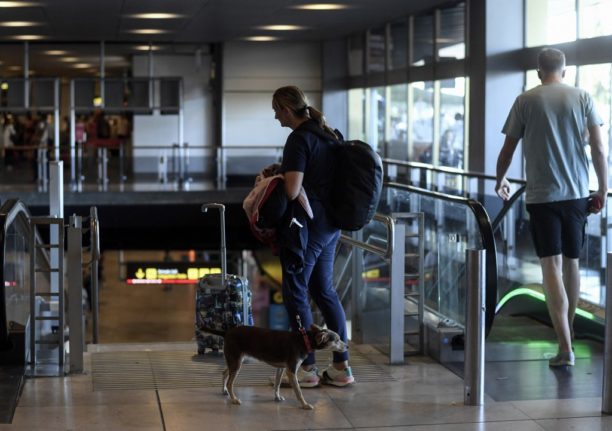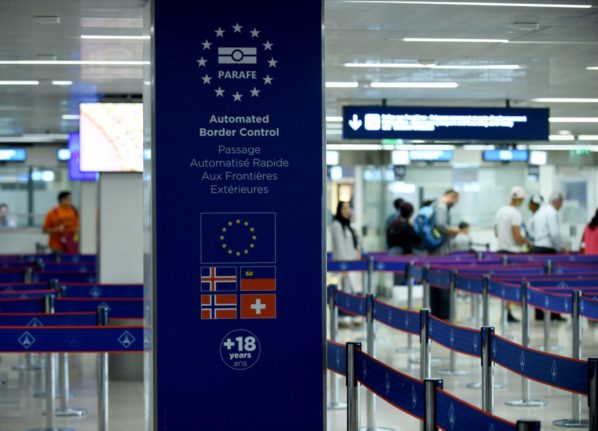(Scroll down to the bottom if you want the quick answer).
In recent days, Spanish authorities have made two important announcements regarding the country’s Covid-19 entry rules for foreigners.
Firstly, Spain extended until November 15th the requirement that non-EU visitors must show a Covid-19 vaccination, test or recovery certificate to enter the country.
A few days later, the Spanish government announced it would no longer require any international travellers to fill in and show its SpTH health control form.
For those who are unfamiliar with Spain’s complex Covid travel rules, the two changes seemed to contradict each other, or suggest that Spain had U-turned on its decision.
Indeed, UK newspapers such as The Independent wrongly ran with “Spain finally drops all Covid travel restrictions”, a headline it has since amended.
Even Spain’s national broadcaster RTVE stated that Spain had ditched the Covid passport requirement.
Both these statements are incorrect.
To clarify, a Covid-19 certificate or passport is one document, and Spain’s health control form is another; they are not the same.
A Covid-19 certificate is issued by authorities in the country where you were vaccinated or tested, whereas the SpTH form was issued by Spanish authorities.
In any case, the SpTH health control form is now officially not required and will not have to be completed by any international traveller arriving in Spain by air or sea.
The discontinuation of this travel form means that non-EU tourists such as Americans, Australians and Canadians and all other non-EU travellers no longer have to complete this step before arrival in Spain.
For British tourists visiting Spain nothing changes in this regard as the UK has long been on the list of 48 non-EU countries with a certificate equivalency deal with the EU, which exempted their nationals from having to fill in Spain’s health control form.
Now for the other important matter.
Non-EU tourists visiting Spain still need to show proof of vaccination, testing or recovery to visit Spain.
It applies to all non-EU travellers aged 12 and over.
This long-standing Covid travel rule remains in place until at least November 15th 2022.
There was no U-turn in this regard as there is no mention of the Covid-19 passport or certificate being ditched in the Spanish state bulletin (BOE) that focused on the cancellation of the SpTH form.
Therefore, non-EU tourists such as Britons, Americans, Australians, Canadians or New Zealanders still need to be able to show one of three documents to be able to enter Spain if they are travelling to Spain from outside of the EU/Schengen Area. These are:
- A Covid-19 vaccination certificate – Your vaccination status must meet the Spanish authorities’ validity period requirements. If more than 270 days have passed since your initial vaccination, you need to show proof of a booster shot.
- A negative Covid-19 test – This should be either a PCR taken within 72 hours prior of departure or an antigen test, taken within 24 hours prior of departure.
- A recovery certificate – This must be dated within the last six months. You can use a medical certificate or recovery record to prove your Covid-19 status.
Are Spanish airport officials still rigorously checking the Covid documents of arrivals from outside of the EU/Schengen Area? No.
Whether or not you get asked is up to chance. Some travellers have said they have been asked to show proof, whereas others have not.
Keep in mind as well that if you’re travelling back to Spain from a non-EU country, but you have a layover in another EU/Schengen country first before reaching Spain, it will be that country’s rules that apply in terms having to show Covid-19 documents. You will already have entered the EU/Schengen Area before reaching your final destination (Spain), so it is unlikely you will asked to provide proof of Covid certificates when you land in Spain.
Face masks are also still required on planes which are bound for Spain, but you don’t have to wear one at the airport.
READ ALSO: Do Spain residents still need to show Covid documents to travel back to Spain?



 Please whitelist us to continue reading.
Please whitelist us to continue reading.
I arrived back in Spain after a week in the UK. 3 Jet2 planes landed before our Ryanair flight. No one was asked to show their Covid vaccination certificate.